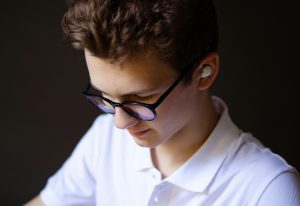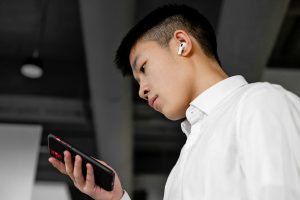What really happens to tech left unchecked? Does it grow stagnant? Does it become Skynet? Does it become a world saver?
Well, it seems that tech that’s left unchecked is something that leads back to itself. Google’s rollout of the Digital Wellbeing feature in the Pixel, their newest mobile operating system (OS), solves the problem they, Facebook, Instagram, and other apps create in their pursuit of users. It’s supposed to track your general usage of your phone, among other things like making Google help you stick to your routine and automating your smart devices. Facebook just released their own dashboard for managing time spent on their app. Even Microsoft launched a similar feature, labeled “digital health” in their Microsoft Launcher, their confusing alternative to operating in an Android ecosystem. Apple, of course, has their own take on helping their users reduce their screen time. It’s an app called Screentime
So, it’s a trend that most major tech players seem to follow. It’s likely that a third-party developer will come up with their own iteration. But to anyone who’s been following tech news for the last seven or more years, this is ironic. These companies compete for the loyalty of consumers, and spend billions of dollars so that their product has more than the other. If one company integrates one thing, the others will follow, and third-party apps will cash in as well. It’s a cycle that continues until their users are so completely dependent on their devices. They’re solving a problem they create. How are these wellbeing apps supposed to actually help if in the first place, they’re still using the same app or device? It’s like telling a heroin addict, “Here’s a cup of lean. It’s not heroin, but it’s still addicting.”
A Mere Response to a Trend
![]() Earlier this year, all signs pointed to major Silicon Valley companies doing something about the amount of time their users are spending on their ecosystems. By major Silicon Valley companies, I mean Apple, Google, and Facebook. The very same agents that keep their users so glued to their phones. A Deloitte survey last 2017 of 4,150 British adults revealed that 38% of them felt that they were using their smartphones too much. If you use a smartphone, it’s easy to understand. All your apps are engineered to eat up your attention, from social network apps to games to leisure apps.
Earlier this year, all signs pointed to major Silicon Valley companies doing something about the amount of time their users are spending on their ecosystems. By major Silicon Valley companies, I mean Apple, Google, and Facebook. The very same agents that keep their users so glued to their phones. A Deloitte survey last 2017 of 4,150 British adults revealed that 38% of them felt that they were using their smartphones too much. If you use a smartphone, it’s easy to understand. All your apps are engineered to eat up your attention, from social network apps to games to leisure apps.
But, the ones surveyed were adults, who had considerably less dependency and usage of gadgets. Children and adolescents today are exposed to it 24/7. It’s the world they live in now, so it’s unavoidable, but these digital wellbeing apps aren’t going to help them. It’s geared toward a populace who are aware that they’re spending too much time perusing their apps. The next generation, however, is just growing up glued to the screens.
This is why it’s hard to take these wellbeing features seriously. It’s a sign that they have so much control over a person’s attention that they’re the ones who can only solve it. For all the billions they spend, they couldn’t see that their products will lead to a phenomenon like this? It’s almost unbelievable that an entire company full of smart people didn’t foresee this. What’s believable is that they’re only reacting to a problem they created.
A Drop of Good in a Sea of Bad (and Useless)
 Health-focused tech isn’t new. In fact, it’s so saturated that people are starting to ask if devices like Fitbit and fitness apps really help people in the long run. There’s so much evidence that goes back and forth, but in the end, it’s possible that just wearing one should help you get started. Even in just walking, any physical activity that you can integrate in your routine is a big plus. More than that, fitness trackers are becoming cheaper, meaning less capital to enter the world of the 10,000 steps.
Health-focused tech isn’t new. In fact, it’s so saturated that people are starting to ask if devices like Fitbit and fitness apps really help people in the long run. There’s so much evidence that goes back and forth, but in the end, it’s possible that just wearing one should help you get started. Even in just walking, any physical activity that you can integrate in your routine is a big plus. More than that, fitness trackers are becoming cheaper, meaning less capital to enter the world of the 10,000 steps.
Other than achieving what other regularly active people achieve, the efficiency of health apps is subjective. Awareness of your condition, conscious tracking of your progress, and regular visits to the doctor are still your best bet to staying or becoming healthy. Any app or device is also still miles away from replicating the results of more intensive treatments. As much as we want to think of ourselves as having full control, external guidance still works in helping us lose weight and achieving other health goals.
What to Do with Digital Wellbeing?
If it’s free, then there’s no reason not to try it. But experts don’t expect these digital wellbeing dashboards to curtail app usage. It will affect how tech companies approach the phone-dependent and app-focused tech culture that we live in right now, but it’s not for long-term use. Not by a long shot.

Nonetheless, there are apps that address this problem and delivers a simple solution. Mute works the best, not because it’s revolutionary, but its actions are directed toward helping you use your phone less in general. It tracks how much screen time you log, encourages you to pick up your phone less, and helps you to break the habit of checking your phone last thing at night and first thing in the morning. There’s also a few psychological tricks here and there, something its users really appreciate.
Hold is the choice for students, though it’s only available in the UK, Norway, and Sweden. By being more offline, students get small rewards like freebies and such. We’ve yet to see something similar stateside but it’s easily implementable. Let’s see if the developer will extend down the Atlantic.
As for people who want something more interactive (and green), Forest is a cool pickup. It sort of works as a game, allowing you to grow a forest full of trees. The caveat is that you plant a tree whenever you want to achieve something, and the more you focus on getting that task done, the faster the tree grows. Of course, it will only grow if you don’t check your phone, so it’s a challenge as well as a game.
If you’re conscious that your phone time is excessive, don’t rely on what you feel is right. Collect data about your usage, and start there. These apps are here to help, and probably the digital wellbeing features that are becoming popular now. In the end, anything you do to help you pick your phone up fewer times can be just as effective as any app.




